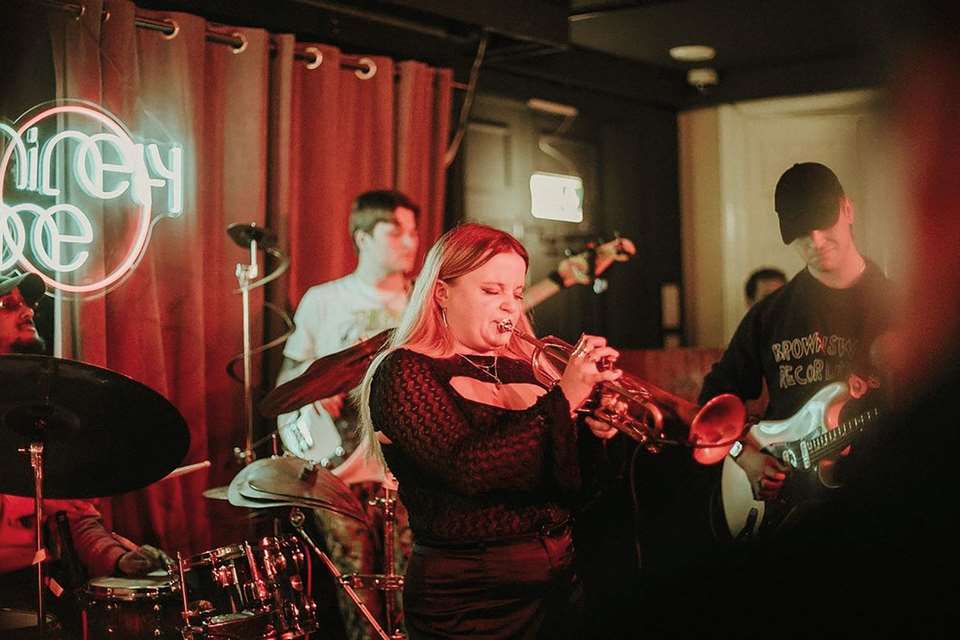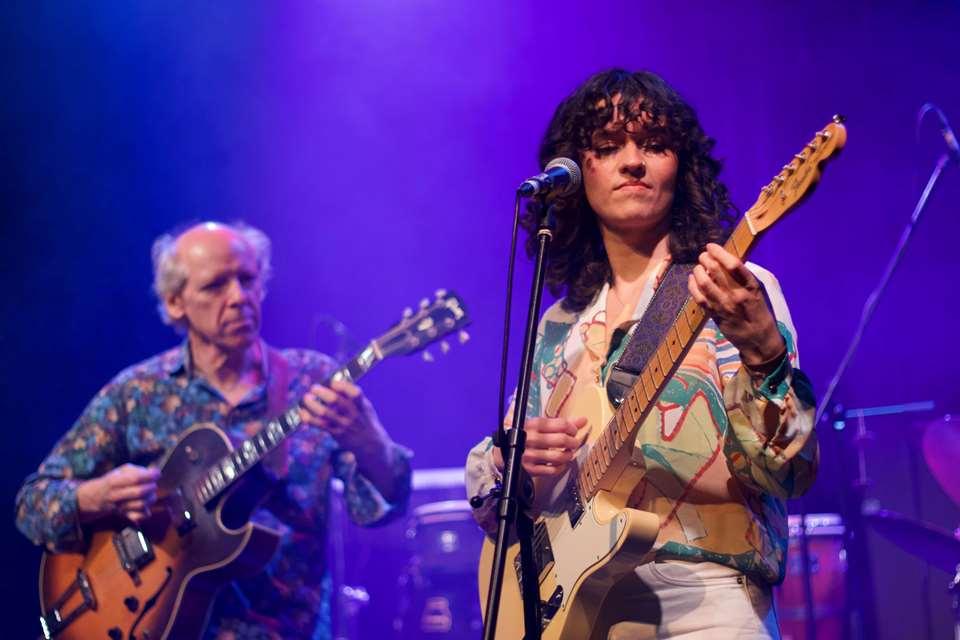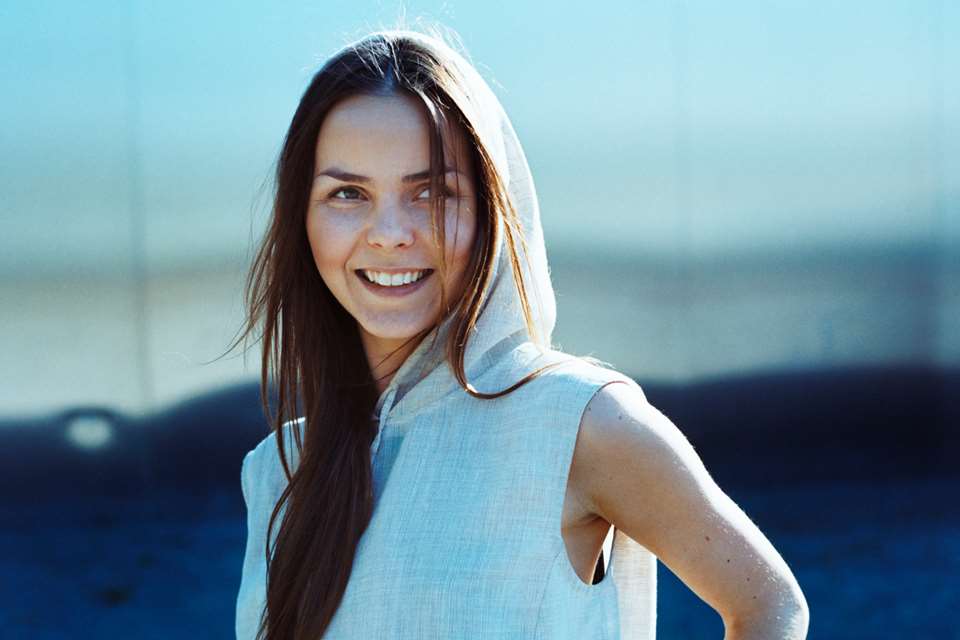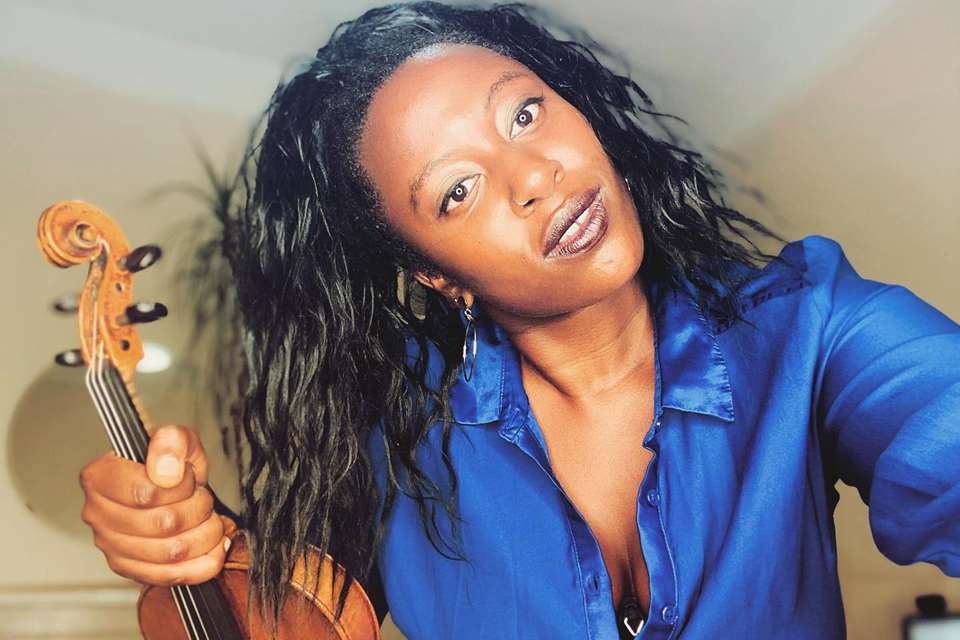Taking Off: Ciara Moser
Michael Jackson
Thursday, April 18, 2024
Dublin-born, Austria-raised, Berklee-educated bassist Ciara Moser is a gifted musician in her own right, but the fact she’s blind from birth makes her truly remarkable. Michael Jackson caught up with this low-end prodigy to find out how she’s challenging preconceptions and winning fans
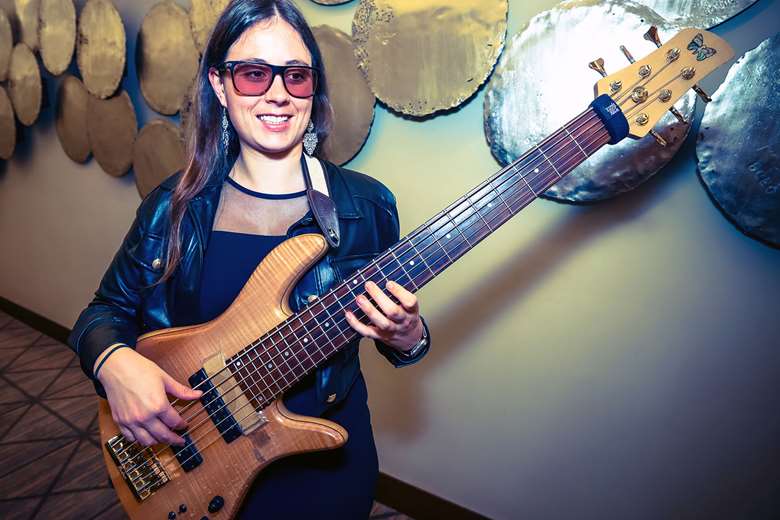
‘Sixth Sense’, or proprioception, helps us track where our body parts are in space. Bassist Ciara Moser calls on it far more than a sighted person, so she can enjoy some independence and also, know where her hands are oriented on her axe, should she make big leaps on the frets. She had a head start getting the measure of stringed instruments studying Suzuki violin from the age of two in Dublin (where she was born in 1996) and then in Austria.
After studying for a Masters in music pedagogy in Vienna she moved to Boston to enrol in Chi Go Kim’s “assistive music technology class” – a unique course aiding musicians with disability to get to grips with Pro Tools, Logic and Sibelius. From there, in 2020 she joined the ranks at Berklee’s visionary Global Jazz Institute (BGJI), and now teaches, assists ensembles with her utterly reliable prowess, and gigs in the Boston area, notwithstanding international tours.
I, and several other musicians, rather patronisingly chaperoned her to her hotel room at the Panama Jazz Festival in January, but as we fussed around her by the elevator, we steered her wrong. “My room’s over here actually,” she laughed.
Moser cycles – via tandem – skis and even started a soccer team growing up, so of course she’d already paced out distances from her room to hotel reception, the bistro, the rooftop gym. She relies on carefully steeped memory, but also claps in the corridor to tell herself, from the acoustical response, which is the nearest wall or window.
Ciara (pronounced "keerer") who, along with kid brother Connor, was blinded from birth by leber congenital amaurosis, outlined how she strategically overcomes that setback during a masterclass at a previous Panama Jazz Festival. Danilo Pérez at BGJI suggested she connect the ways she manages prosaic day-to day-tasks and her music career, prompting an audacious, highly accomplished and self-made debut, heralding a refutation of disability: Blind, So What?
Further influenced by Terri Lyne Carrington and Patricia Zarate’s philosophies of socially engaged artistry/music therapy, the album is poetically didactic, deploying a world class international talent pool from Berklee.
One of Moser’s chief collaborators with the music was South African drummer Lumanyano Mzi. “Everyone on the album is a close friend,” enthuses the socially adept Moser, “but Lumanyano is my dear brother. When you play bass, the connection with drums is crucial and we have an uncanny simpatico. We’ve played African and Haitian music together, and are often booked as a rhythm section.”
Another important ally is Moser’s roommate, lead vocalist Aditi Malhotra, who along with Nishant Shekar, who sings on the track ‘I Trust’, she met at BGJI and in Berklee’s Indian Music Ensemble respectively. The composition ‘Memory’, which won a Herb Alpert award in 2023, features South Indian konnakol, Moser’s lyrics describing how she internalises all music she hears. The track coruscates with ideas and contrapuntal elements and features impressive work from Dominican guitarist Amaury Cabral.
‘The Call to See Beyond’ bespeaks the fact that a blind person doesn’t judge skin color or outward appearance; in return Moser expects lack of scrutiny and cliched conclusion about her ostensible limitations. Being blind begets attention, but Moser’s onstage presence and charisma in Panama, with Zarate’s formidable Global Jazz Womxn and also the 34-piece, generation-spanning Las Hijas del Jazz Orchestra, often make her the nucleus of proceedings.
The warm, resonant sound of her Fodera six string bass, (recently she added a semi-acoustic Marcustico to her armoury), allied to nimble fingers ready to change gear and direction at will, are met by stellar peers, who match her virtuosity on this Kickstarter funded release.
French saxophonist Salim Charvet contributes an intriguingly illustrative alto solo on ‘Different Ability – Part 1’ equalled for inventive originality by Lihi Haruvi’s sopranino on ‘Part 2’. Moser has to prepare with great concentration, but when she unspools, as on the beautiful, reverberant (not without temporal tremour) ‘Humanity’, it feels like a lavender bath. “On ‘Travelling’, I wanted to have Salim express some of his Moroccan heritage, so we cut off the 11/8 meter and played an improvised drone. In the studio it was meditative, without concerns about perfectionism. A great example of being in the moment, or as Danilo would say, in a state of zero gravity.”
Aspects of Blind, So What? smack of graduate thesis fulfilment, but Moser is on a serious mission here to educate as well as entertain. Her hi-tech, high-level fusion is ingeniously assembled and performed with energy and precision. Formative heroes include guitarist Guthrie Govan, bass aces John Patitucci and Hadrien Feraud and she's worked alongside Victor Wooten, but she’s rapidly stretching out on her own with rhythmic, harmonic and melodic brilliance. Watch out world, Moser is a major talent!
This article originally appeared in the April 2024 issue of Jazzwise. Never miss an issue – subscribe today

